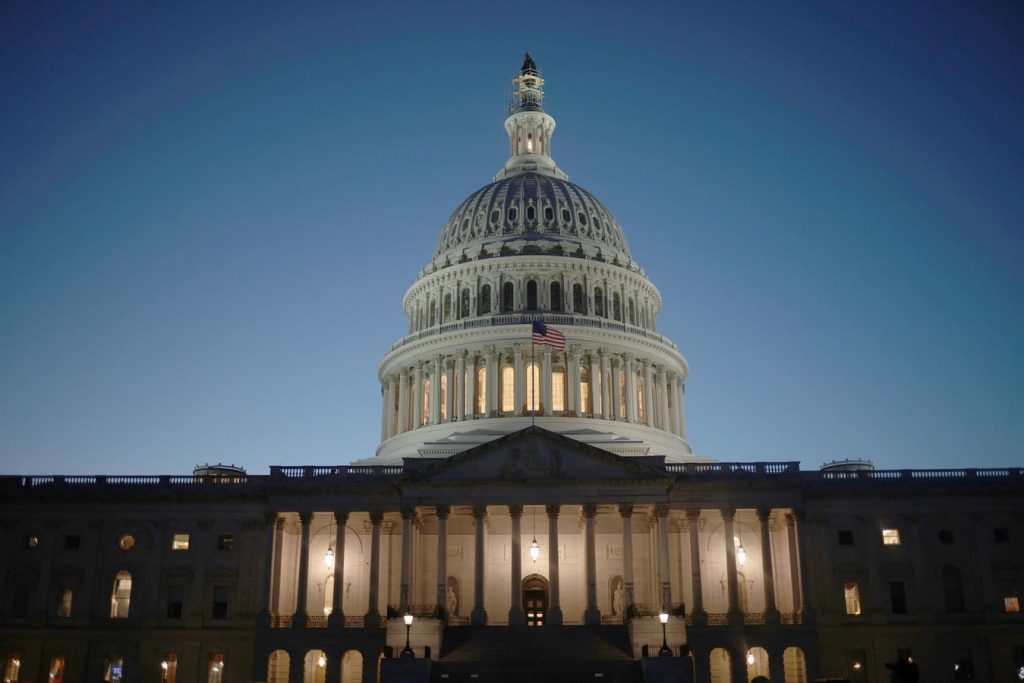On August 12, a new piece of legislation, the Keep Call Centers in America Act of 2025, was introduced into the U.S. House of Representatives. The bill aims to deter companies from relocating call centers overseas and to keep jobs within the United States.
The main provisions of the proposed new act include:
Requiring the U.S. Department of Labour (DOL) to maintain a publicly available list of U.S. employers that operate contact centers outside of the U.S.Making companies that relocate call centers overseas ineligible for Federal grants or guaranteed loans.Employers that have contact centers outside of the U.S. will face financial penalties.Agents supporting customer service interactions must disclose their location if asked, and transfer the customer to a U.S.-based agent.Organizations must also disclose when artificial intelligence (AI) is used in customer service, and they must transfer customers to a human agent based in the U.S. if asked.
Shortly after the bill was introduced, Gartner published a research note titled “How Service Leaders Can Prepare for the Keep Call Centres in America Act.”
While it is not clear if this bill will pass and what its final form, if any, will be, according to Deborah Alvord, a Vice President Analyst within Gartner’s global customer service and support research group and one of the lead authors of the research note, it could have profound implications.
It’s important to bear in mind that when organisations utilise offshore contact centre facilities, it is often done for cost-saving reasons. Gartner’s own research suggests that those cost savings can range from “20% to 40% in operational costs, depending on the country where the contact center is located.”
Alvord and her co-authors believe that organizations will not give up these cost savings easily, and, in fact, their analysis suggests that the proposed legislation could compel leaders to accelerate their investments in automated and AI solutions, thereby reducing the number of more expensive U.S.-based agents needed if they had to move their contact center facilities back onshore.
In addition, even if an organization decided that it wanted to onshore its customer service operations, it’s not clear that it would it would be easy for them to do so. Unemployment in the U.S. is historically low, and demand for qualified customer service talent in many U.S. markets is currently very high. According to Randstad, the role of customer service representative is number 1 on their list of the most in-demand roles in 2025.
The U.S. Capitol Dome. (Photo by Win McNamee/Getty Images)
Getty Images
Interestingly, however, on the same day (Sept 5) that I spoke to Alvord, another bill called the Halting International Relocation of Employment Act (HIRE Act) was introduced into the U.S. Senate. Similarly, it also aims to curb offshoring and boost American jobs, but takes a different approach and includes provisions such as:
Imposing a 25% tax on outsourcing payments, defined as any money paid by a U.S. company or taxpayer to a foreign person whose work benefits consumers in the United States. The creation of a “Domestic Workforce Fund” to collect any monies raised from the outsourcing tax and to use these monies to support apprenticeships and U.S. workforce development programs. Rules prohibiting companies from deducting any outsourcing payments, andPenalties of up to 50% per month on unpaid taxes.
Although both bills have entered the legislative process, it is not yet clear which has a greater chance of advancing, if at all.
Sebastian Menutti, Industry Director, ICT at Frost & Sullivan, doesn’t rate either bill’s chances. In a viewpoint published on LinkedIn, he believes that “Many similar acts were presented in the last two decades, and none of them passed. At least four were presented, some more than once, and some during this government´s first administration. Additionally, many large corporations would be jeopardized by these acts, as well as all consumers, due to rising costs and prices of almost all goods and services. All this together makes it at least not certain that any of these acts would be passed.”
Craig Crisler, CEO of Support Ninja, a US-based full-lifecycle CX (Customer Experience) outsourcing solutions provider, commenting on The Keep Call Centers in America Act, in particular, suggests that the act “feels more symbolic than imminent. It reflects shifting political winds, but in its current form, it faces steep opposition and is unlikely to pass without significant amendments. A nearly identical bill in 2015 stalled under pressure from the business community. This reboot highlights today’s heightened conversations around job repatriation, AI oversight, and consumer transparency, but the legislative path remains uncertain.”
However, although bills like these have not passed before, both Alvord and Crisler do not expect brands to adopt a wait-and-see approach.
Crisler believes that brands will respond in two ways. First, he believes that they will lobby, as they did in 2015, for amendments that preserve hybrid models, and secondly, they will respond “by accelerating automation and AI adoption to offset higher domestic labor costs.”
Similarly, Alvord and her co-authors at Gartner believe that “this legislation will likely motivate service leaders and their organisations as a whole to become even more aggressive in eliminating certain customer interactions currently handled offshore. Rather than onshoring roles to handle the current volumes, organizations will likely accelerate investment in technology and automation, shifting interactions to self-service and AI solutions and reducing the demand for human support altogether.”
The problem with all of this is that consumers’ experiences with digitized, automated, and AI-powered services so far have been mixed.
So, in an environment where competition is fierce and research indicates that more than half of consumers will switch to a competitor after just one poor experience, the pressure to develop more effective, intuitive, and better-tested digital, automated, and AI-powered experiences just went up.


